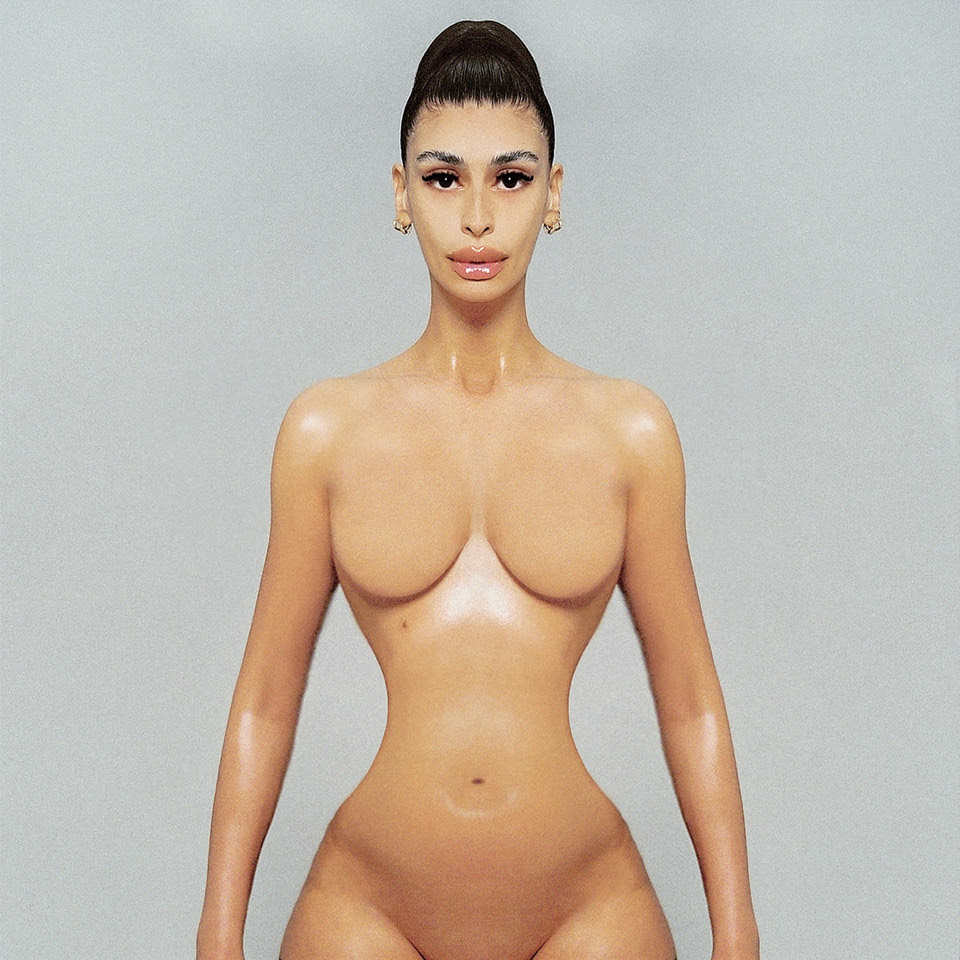While significantly shorter in length than 2020’s Shabrang and 2017’s ISON, both albums exceeding an hour in duration, Sevdaliza’s new set, the six-song, 26-minute Raving Dahlia, stands as her most stylistically varied and tonally adventurous project to date, the Iranian-Dutch singer, songwriter, and producer using her prior ventures as a launchpad for fresh emotional and sonic forays.
The album’s cover image sports a naked and digitally sculpted rendition of Sevdaliza, hinting at a sci-fi theme. Supplementary info, too, points to such forward-looking productions as Ex Machina and Westworld, suggesting that the project’s persona is a ‘femmenoid robot’ named Dahlia “specialized to serve the unrealistic expectations of women in modern society.” However, despite the application of enhancements often associated with futurism, including dabs of a warpy Auto-Tune and a sprinkle of glitchy textures, the sequence actually occurs as a fairly down-to-earth manifesto, Sevdaliza proclaiming her emancipation from all-too-real societal expectations and patriarchal dictates.
For example, when she announces, “I’m done / … you’re dead to me” on the project’s opening track “System”, she not only terminates a romance but also proclaims her independence from various institutional structures and constructs, including prescribed definitions of God, that have pathologized and disempowered women for centuries. Her voice is mournful yet confident, framed by sharp beats and spacious synths.
“High Alone” builds on a dream-pop gestalt, the intro conjuring Sonic Youth circa Goo or a Beach House track. A mostly ambient guitar part drapes over a straightforward drum beat, Sevdaliza’s voice sumptuously layered on the hook-y choruses. Her versatility is further exhibited on “Everything Is Everything”. Lyrically, she implicitly references pantheism, the notion that divinity exists in all things (for centuries, the Catholic Church considered pantheism a “burnable” heresy). Clangorous synths and garage-y beats contrast with her fluid vocal and catchy melody, yielding a mix that brings to mind Christine and the Queens’ Chris or MØ’s recent Motordrome.
On “The Great Hope Design”, crisp beats accent Sevdaliza’s minimally accompanied voice, reiterating some of the stark soundscapes of her 2018 EP The Calling. “No man can guide me / I am my own god,” she sings, recalling Halsey’s line – “I am not a woman, I’m a god” – from last year’s If I Can’t Have Love, I Want Power. While Halsey, however, plunges into the narcissism-meets-self-loathing trope a la poets Plath, Sexton, and Olds, Sevdaliza attempts to de-neuroticize her internal dialogue, recognizing auto-flagellation as a symptom of systematized abuse. If Halsey’s mythic analogue is a pissed off Ophelia, Sevdaliza’s is, at least energetically, a woeful Medea or, to reference the Superhero genre, an angrier version of Catwoman’s Selina Kyle.
On “Human Flow”, amidst a strummy acoustic guitar, reverb-y synths, and a chorus of background vocals, Sevdaliza notes the relentless unfolding of one’s own story and the broader narrative of human evolution, positing that choice and fate coexist. Closing tune “Oh My God” features altered and untreated vocals set against one another, invoking one of the 21st Century’s primary themes: the alternately utopian and dystopian interplay between technology and humanity. The piece ends with a somewhat cacophonic hyper-pop segment that could’ve been inspired by Arca pre-Kick II or Sophie’s Oil of Every Pearl’s Un-Insides.
If Shabrang and ISON delineated Sevdaliza as the archetypal exile, Raving Dahlia puts her on center stage as she, spiritually and attitudinally, claims a home for the first time. She remains the outsider but is no longer plagued by longstanding cultural norms. Embracing a liberated state, she has no need for rules, particularly if they were written by someone else.

